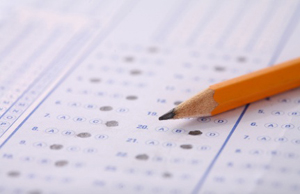As always, remember that John’s book The Influence of Teachers is for sale at Amazon.
A month or so ago, I speculated about the most influential person in American education — then two weeks ago I expanded upon those musings in a feature for the New York Daily News. In both columns I put forth four nominees — Wendy Kopp, Big Bird, Arne Duncan and Joel Klein — and chose Joel for his remarkable network of eleven protégés now influencing what happens in schools and classrooms around the nation.
I was attacked for my choice by people who feel that his influence has been negative, or even destructive. Few seemed to notice that I neither praised nor condemned the former Chancellor’s policies. No one challenged that he changed New York City schools in dramatic ways — nor could they. Remember that before mayoral control, New York City had 32 separate districts, quite a few of them known as jobs programs for cronies with little regard for student outcomes. There was little sense of urgency about actually educating large numbers of children, and the central office at 110 Livingston Street was a nightmare. Joel changed all that.
But there were other reactions, including a few “How could you leave off….?” letters.
So, without asking Joel, I am reopening the discussion and adding several nominees. The new names are:
- Diane Ravitch, the former Bush education official who has become NCLB’s fiercest critic
- Howard Gardner of Multiple Intelligences fame, whose writings have influenced thousands of teachers
- E. D. Hirsch, Jr., the inspiration behind Core Knowledge, whose elementary school curriculum is — for me anyway — a bright shining light.
From the original list, ‘Big Bird’ is, of course, a stand-in for Sesame Street , Joan Ganz Cooney, the Muppets and The Electric Company. Add two men we have lost — Fred Rogers and Jim Henson — as you consider your vote. Just think how many American children have been positively influenced by this team!

Arne Duncan might deserve more votes if he continues to press Congress on NCLB, which he now threatens to do by granting waivers.
When you consider Wendy Kopp, realize she’s a serious contender — and not just for the 9,000 Teach for America corps members who will be teaching in some of our toughest schools this fall. I invite you to review some of the names of people who have come through TFA in its 20 years on the scene and remain influential:
- Chancellor Kaya Henderson of Washington, D.C.
- Superintendent Cami Anderson of Newark, NJ
- Michelle Rhee, former Chancellor in D.C. and now of Students First
- Dave Levin and Mike Feinberg, the founders of KIPP
- Iris Chen of I Have A Dream
- Kim Smith of the New Schools Venture Fund
- Dan Katzir, late of the Broad Foundation
- Kevin Huffman, now State Superintendent in Tennessee
- Sarah Usdin, the founder and CEO of New Schools for New Orleans
- Chris Barbic of YES Prep in Houston
- Sara Mosle, the writer
- Whitney Tilson, a financial wizard now of TFA’s Board
- Michael Johnston of the Colorado State Senate
- Richard Barth, the CEO of KIPP
That list doesn’t mention a large handful of Teachers of the Year, and about 15% of the principals in Oakland. What’s more, she and TFA are a case study at the Harvard Business School, an honor that has so far escaped Joel, Arne and Big Bird.
Before you cast your vote, let me add a wild card, which I am calling the “Roberto/Robert team. ” They are two mostly invisible hands within the Obama Administration — hands that may not wash each other. Roberto J. Rodríguez serves in the White House Domestic Policy Council as Special Assistant to President Obama for Education. Previously, he was Chief Education Counsel to United States Senator Edward M. Kennedy (D-MA). In this capacity, he managed the Committee’s Democratic education strategy for legislation addressing early childhood education, elementary and secondary education, higher education, and adult education. As for Robert Gordon at OMB, the Washington Post described him thusly: “Gordon will tackle the task of finding wasted cash in the financials of the nation. Education and labor are his specialties; he has written extensively on the impact of the “No Child Left Behind” (NCLB) bill, and has worked in the New York City Department of Education … Gordon has been an advocate for changing teacher-tenure rules in public schools, modifying NCLB and increasing efforts to fight crime.”
This raises the possibility that Roberto proposes from the White House and Robert vetoes from his desk at OMB, saying, ‘We can’t afford that.” Does that make them a force for stasis, for gridlock? Does that disqualify them? Your call.
So there are the new nominees for “Most Influential Educator in America.”
Vote here, vote early and vote often.
